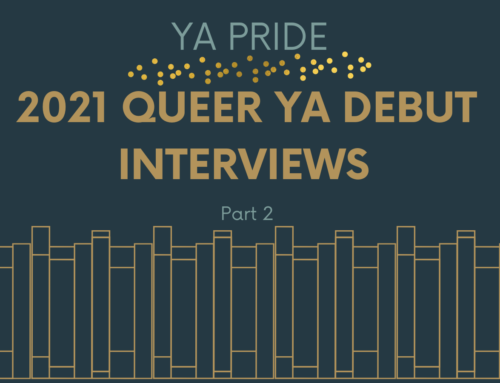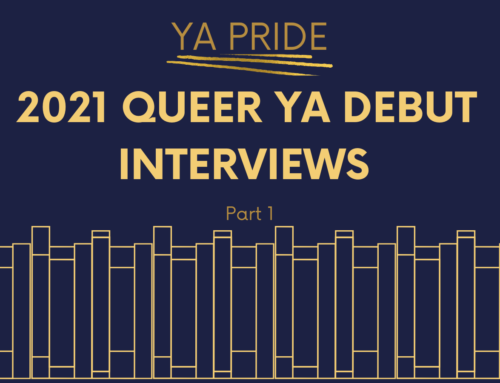Asexuality in YA Series: Day #5
Previous Posts: Representing the Asexual Experience by Tabitha O’Connell | My Kind of Normal | What’s So Important About Ace Representation? by Kazul Wolf | Navigating the In-Between: Demisexuality in YA Lit by Dill Werner | Introduction: Asexuality in YA Series by Vee S.

The future always seemed bright, but it turns out that was just global warming. Meals don’t come in pills, shoes don’t lace themselves, and there are flying cars, but the gas mileage sucks. There is one difference. People have always searched the internet for answers. Now they actually worship it.
Pen Nowen’s father was the founder of Interface, a computer company so big and powerful that people began praying to it. Especially when his death almost tanked the economy.
Seven years later, Pen’s just finished her junior year of high school. For their summer vacations, all of her friends are going to Disneyland, Tijuana, or Disneyland Tijuana, but Pen’s going on a pilgrimage to pray for what’s left of her family. She’s on her way to the Interface flagship store when she gets kidnapped.
It’s the second time this year. She’s about to begin the ransom negotiations when the kidnapper says that he doesn’t want money. He wants something else from her. Before Pen can text 911, he says something even creepier. He knows the truth about her dad’s death.
Interface is a young adult dystopian trilogy set in 2047. I love series like The Hunger Games, but I always wanted to know how modern society could turn into the kind of dystopias we’re used to reading about, so I decided to write that book. Although I started writing Interface in 2012, to be honest, 2016 has made it a lot less difficult to imagine.
Interface is my first book, so I didn’t expect much when I started pitching it to literary agents. After a few rejections, I received an offer from ICM Partners, one of the biggest agencies in the world. It felt like a pipe dream come true. Then my agent asked me to add a romance between the two main characters, because romance was “crucial to the plot.” The protagonist of Interface is asexual and aromantic.
Pen’s sexual orientation isn’t stated explicitly until the third book, because discovering that you’re asexual usually doesn’t happen overnight. Asexuality is so underrepresented in the media that many adults have never even heard of it. I was lucky enough to learn about it in college.
Pen knows a lot more about the sexual spectrum than I did at seventeen, but she experiences so much pressure from society to have the kind of romance featured in most young adult fiction that she doesn’t feel comfortable identifying as asexual and aromantic until the third book. The pressure Pen feels ended up mirroring the pressure I felt from my agent to add romance to my book (which I always had the uncomfortable feeling was euphemistic for sex). When I refused, the agency withdrew their offer.
After a lot of ice cream and Radiohead, I decided to try posting Interface on Kickstarter. It was 122% funded. It was released this Thanksgiving.
I received an overwhelming response from the asexual community. They donated, posted, Tweeted, and Retweeted. Almost every time I thanked someone, I got a thank you in return for writing a book with an asexual character. I never really felt like I deserved it. When I made Pen asexual, I wasn’t thinking about representation. I was just obeying the age-old adage, “Write what you know.” I didn’t think having an asexual character would be a problem until I got rejected for it. That was probably naive of me, but it led me to Kickstarter, and that led me to start thinking about representation. About why asexuals are so desperate for a book, a TV show, a movie, in which we can see ourselves. Why we don’t want kids in 2047 to grow up feeling as broken as we did.
Hopefully by 2047, asexuals will have more representation, but there’s a reason 2016 has felt a little dystopic. Bigotry and hate aren’t going away anytime soon. There will still be societal pressure on asexuals to conform to heteronormative standards, just as there’s still pressure on gay and transgender people, decades after movies like Philadelphia and Paris is Burning. Representation matters, but it’s not the only thing that does.
Interface is just another self-published book from a first-time author. I know it won’t contribute much to our representation, but when we have so little to begin with, even a little is a lot.
—
Lucy Mihajlich lives and writes in Portland, Oregon. She’s very popular on the internet, or at least her mother’s Facebook page. Interface is her first novel.




